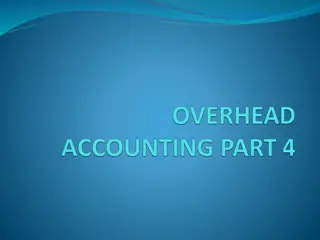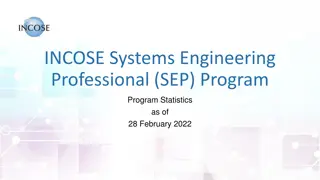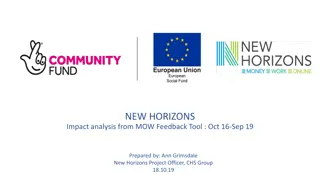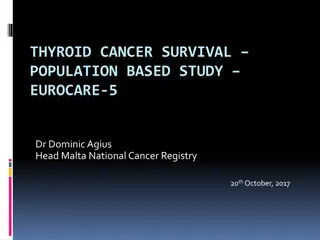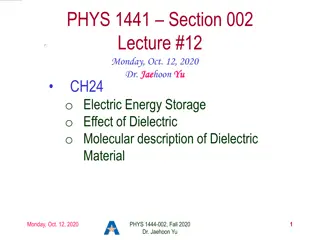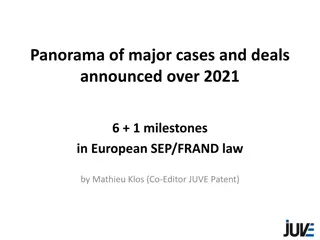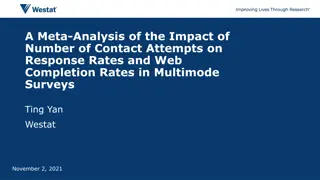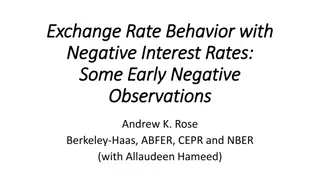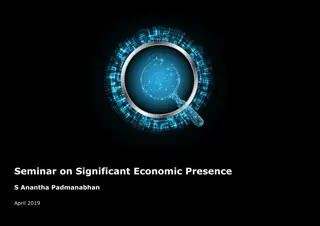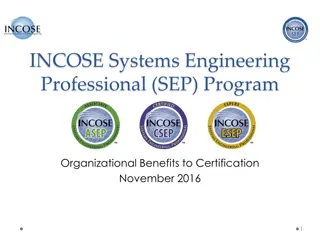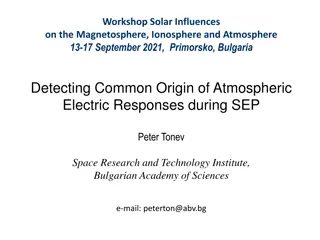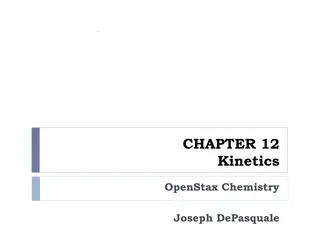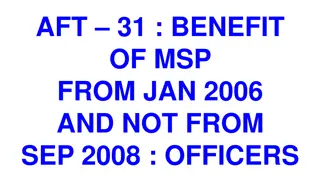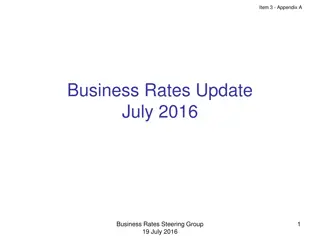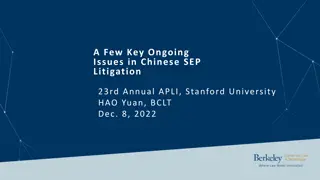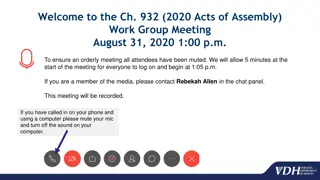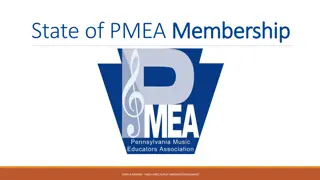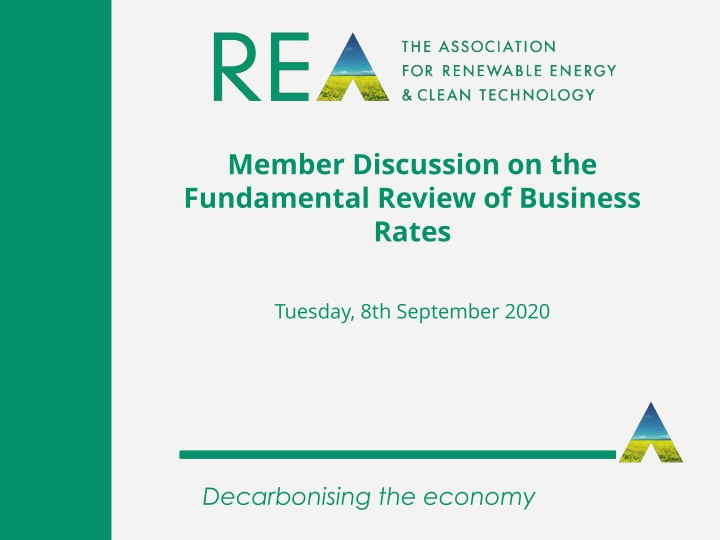
Member Discussion on Fundamental Review of Business Rates - Decarbonising the Economy
Explore the Member Discussion on the Fundamental Review of Business Rates focusing on decarbonising the economy. Topics include reliefs, multipliers, valuation, appeals process, and exploring alternatives. Get insights on how to improve the current system and reduce the burden on businesses.
Download Presentation

Please find below an Image/Link to download the presentation.
The content on the website is provided AS IS for your information and personal use only. It may not be sold, licensed, or shared on other websites without obtaining consent from the author. If you encounter any issues during the download, it is possible that the publisher has removed the file from their server.
You are allowed to download the files provided on this website for personal or commercial use, subject to the condition that they are used lawfully. All files are the property of their respective owners.
The content on the website is provided AS IS for your information and personal use only. It may not be sold, licensed, or shared on other websites without obtaining consent from the author.
E N D
Presentation Transcript
Member Discussion on the Fundamental Review of Business Rates Tuesday, 8th September 2020 Decarbonising the economy
Housekeeping All participants are muted. However, please indicate an intention to contribute by unmuting your microphone and you will be invited to speak. All written comments in the chat box will be captured as feedback as well If you are not speaking please mute your own microphone. Feel free to turn video cameras on, however if there are any web difficulties, we may ask for videos to be turned off. We will be recording the session and slides will be available after. Thank you
Agenda Background to Consultation Gerald Eve vew and context from Thomas Kinsey Member discussion focusing on eight sections: 1. Reliefs 2. Multiplier 3. Valuation & Transitional Relief 4. P&M Review 5. Appeals process 6. Maintaining Accuracy of Rating List 7. Billings process 8. Exploring Alternatives
Background to Consultation High-level call for evidence, with little concrete proposals. Has been brought out in response to select committee report in 2019. Also due to changes in next revaluation caused by Covid-19. Scope for the review: reducing the overall burden on businesses; improving the current system; considering more fundamental changes medium-to-long-term. There are two deadlines for this consultation: 18 September (Multipliers and Reliefs sections) and 31 October (all other sections including Parts & Machinery). Summary of draft REA response key points Government should remove onsite renewables and clean tech from Parts and Machinery (P&M) order. Recommend a reduction and freeze on the Uniform Business Rate (UBR) multiplier. Support increasing the frequency of revaluations.
1. Reliefs Q1-5 Consultation Summary: - Government interested in whether current reliefs are fit for purpose. - They ask how they could be made more targeted and what role Local Authorities should have in their application. - They also ask if we are aware of ratepayers miss using relief to avoid tax liabilities. REA draft Response: Reliefs system is too complicated . Reliefs have been introduced at odd times and often badly focused. Reliefs should be simplified in such a way as to support decarbonisation; a relief on onsite renewables and clean tech is necessary to drive deployment. This can be cost neutral. Reliefs should primarily be applied by and paid for by central government.
2. Multiplier Q6 9 Summary: - Government seeks views on how the Uniform Business Rate (UBR) multiplier is set each year and at revaluations. - They ask about alternatives, including in relation to reliefs, although stress need to maintain public finances. - Also interested in the possibility of regional or property type specific UBR s. REA draft Response: UBR multiplier should be reduced and frozen for duration of each rating list In the past UBR has risen faster then inflation. More frequent revaluations will allow the tax intake to respond to market changes. A steady UBR will make it easier for businesses to model liability Focus should be on direct reliefs rather than in the multiplier, to guard against overcomplexity. Introducing additional multipliers also increases the potential for double support which could create an unequal playing field.
3. Valuations and Transitional Relief Q10 -16 Consultation questions : - Government seek views on the frequency of revaluations and views of moving to a banded or zone base valuations. - They also ask about providing more information to the VOA to help facilitate more frequent revaluations. - They ask about the period between the Antecedent Valuation Date ( 2 years) and Revaluations. - Plus questions on the funding of transitional relief and definitions of rent. REA draft Response: We support the Government s proposal to move revaluations to every 3 years. Banded systems have potential to simplify the system but would require careful and transparent modelling. Zoning should be avoided as it would discourage larger renewable developments. VOA already has a range of powers. Clear proposals needed to understand implications. We would support the AVD being reduced so that it is more up-to-date. Further member views welcome transitional relief and rent.
4. P&M Review Q17 22 Consultation questions: - Ask for evidence on how current plant and machinery order impacts investment decisions and for justification of exemption on permanent or time-limited basis. - Ask what effect business rate changes would have compared to other support mechanisms - There is a specific question on using BR support to decarbonise buildings. REA draft Response: Current P&M order disincentivises investment in onsite renewables and clean tech. We highlight roof top solar, but also highlight growing impact on storage, renewable heat systems and EV charging infrastructure. All renewable and clean technologies should be removed from the P&M order to support decarbonization. Investment money being held back. Installation reduces business running costs. High profile cases eg Lidl. Removal from P&M could be tax neutral or even increase revenue. Essential for supporting decarbonisation and growth of clean industry. Removal from P&M would support decarbonization of buildings by removing a barrier and help other support mechanisms to succeed. Member case studies required.
5. Appeals Process Consultation questions (Q23 15): - Consultation asks what further changes are need to the Check, Challenge and Appeal Process - Asks for further feelings about sharing further information with the VOA and other ratepayers REA draft Response: Registration and claims process still unfriendly. Timescales for VOA response should be reduced to 3 months for an initial check appeal, and 6 months for a secondary challenge appeal.
6. Maintaining Accuracy of Ratings List Consultation questions Q26 -28: - Asks for views on requirements to provide VOA with rental information, either routinely or with change of lease or when there is a material change of circumstance. - Also ask about making the commercial lease information publicly available. REA draft Response: We are against additional requirements as likely to be tricky to comply with as it is not always clear which factors affect liability, particularly given that renewable and clean tech businesses rely on multiple revenue streams that could be subject to policy change. Also likely to increase administrative costs for businesses Publishing information s should be avoided given the potential for the release of sensitive commercial information.
7. Billings Process Consultation questions: (Q29 to 32): - Questions concern improving the billing system, including developing a centralized online system REA Response: - REA supportive of an online billing system whereby demands for each property can be readily identified in a single place would be a significant step forward and assist portfolio management of business rates within companies
8. Exploring Alternatives Section relates to exploring alternatives to Business rates as identified by the Treasury Select Committee 2019 report. Two Primary Proposals include: - Capital Values Tax: Basing the tax on combined capital value of non domestic land and property (rather then rentable values.) paid by the owner rather then tenant. Potentially raises difficulties of defining who is liable for the tax, especially if located outside of the UK. - Online Sales Tax: Addresses imbalances of rates on high value retail properties against those just selling online. Could be introduced in paralleled to business rates in order to make market more event. Some suggest this would increase consumer costs. Member input sought.
Next Steps Further comments welcome on all aspects of the response. Please send any further comments on multiplier and reliefs by Wednesday 16th for Government deadline to respond on the 18th September. Please send comments for all other sections (including P&M) by 26th October for Government deadline is 31dt October. Mark Sommerfeld msommerfeld@r-e-a.net Isobel Morris imorris@r-e-a.net

